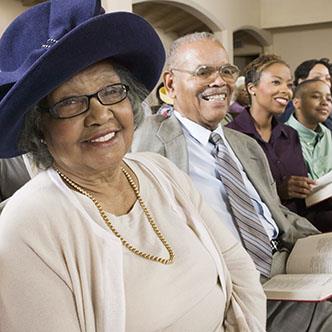
Bringing health care into the community could help reduce racial disparities, based on a recent study that found church-based programming helped improve blood pressure control in black adults after just six months. Findings were published in Circulation: Cardiovascular Quality and Outcomes and are among the first to show the effects of a blood pressure-reduction program in black churches.
Known as the FAITH study (Faith-Based Approaches in the Treatment of Hypertension), this study compared two blood pressure programs in New York City churches. The first program included eleven 90-minute group sessions that focused on healthy lifestyle choices, such as a healthy diet, exercise, stress management and medication adherence. These choices are known to help lower blood pressure and aid in blood pressure control. The program also included three one-on-one motivational interviews that helped participants address challenges for adopting these healthy behaviors.
The second program included eleven sessions that provided standard information about blood pressure management.
The study included 373 black adults with high blood pressure who came from 32 churches in New York City. The average age of participants was 63, and three out of four participants were women.
After tracking participants’ blood pressure for six months, researchers found that those in the intensive program had significantly lower blood pressure levels than those in the education group. By nine months, participants in the intensive group still had lower blood pressure, although the difference was no longer considered statistically significant.
Still, authors are encouraged by findings. According to authors, this is the first study to show that community-based programming in churches could promote blood pressure control.
High blood pressure is a major risk factor for life-threatening heart events and currently affects one in three U.S. adults. However, black adults face significantly higher risk for developing high blood pressure, which is why tailored programming is so important.
Experts also note that in the FAITH study, programming was delivered by fellow church members who completed short trainings on high blood pressure and motivational interviewing. Since these workers did not need a background in health care, the model is especially promising in areas where funding for programming is limited.
It’s estimated that only half of U.S. adults with high blood pressure have their condition under control. Experts note that community-based programs like those delivered in churches could help blacks reduce blood pressure and even reduce racial health disparities.